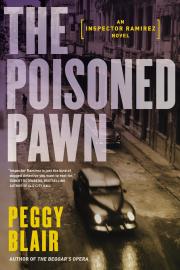
In response to my posting yesterday on Absolutewrite.com , a sharp-eyed poster noted that I had used ‘who’ instead of ‘whom.’ This resulted in another poster pointing out that in informal English in North America, there’s nothing wrong with that usage.
But in response to these comments, a third poster introduced us to Skitt’s Law, which I think is hilarious. (Thank you, Medievalist). In summary:
- If you write anything criticizing editing or proofreading, there will be a fault of some kind in what you have written.
- If an author thanks you in a book for your editing or proofreading, there will be mistakes in the book.
- The stronger the sentiment expressed in (1) and (2), the greater the fault.
- any book devoted to editing or style will be internally inconsistent.
And finally, according to Muprhy’s Law, (deliberately misspelled, by its creator), if a mistake is as plain as the nose on your face, everyone can see it but you.
This made me think about typos, and the effect they have on a manuscript both in the querying and publishing process.
Agents refer to a manuscript as being ‘polished’ when it reads well, when it’s written well, when the writing is smooth and pacy. Typos and grammatical errors detract from that. And the more there are of them, the more you look, well, kind of stupid. I think you can get away with a few of them. For example, I discovered, to my horror, that my Debut Dagger submission was missing a word in a sentence, even after I’d gone over and over it without noticing. Clearly, it wasn’t fatal. But I suspect that several similar mistakes would have been.
The problem is that, as the author of passages you’ve re-written over and over again, as you polish them for submission, you can get so familiar with your text that you don’t notice the mistakes anymore. I think your brain just skips over those missing words; no longer sees the spelling errors.
My LLM thesis was read and re-read not just by me dozens of times but also by my thesis advisor. Not to mention the jury that approved it. None of us noticed, until it went into publication, that there was a glaring typo on the very first line of the very first page. Right where you couldn’t miss it. And yet we all had.
I don’t know how many books I’ve read recently where I felt like bringing out a red pen and correcting the errors in them. ‘You’re’ and ‘your’ are pet peeves of mine; ‘its’ and ‘it’s’ are another. But then there are plain old spelling mistakes that seem to creep into so many books these days. One or two, I can live with. When I see more than that, I start looking for them, instead of reading the narrative of the story.
I remember one book I picked up in the airport where I read the same chapter twice. Not because it was so interesting, but because it had actually been replicated in different parts of the same book. Where the heck was the editor?
I’ve been told that due to the cuts in the business, editors don’t have time to do much actual editing anymore. I’m sure that in the big publishing houses, they still do — I can’t imagine any publishing giving someone a six or seven figure advance and then cutting those corners.
But in the smaller ones, I suspect you’re pretty much on your own. Just as you are when you query, and when you submit.
Obviously, you need to spell-check like crazy. If you have a Vista program like mine, you may also have to go into ‘Prepare document’ and make sure you ‘inspect’ the document as well. I recently sent off what was supposed to be a revised version of my manuscript to my agent, only to find out that the ‘revisions’ hadn’t saved into the document because I hadn’t done that. That was more than a little embarrassing, particularly when my agent gave what he thought was a revised manuscript to his assistant to review, only to receive the same remarks back.
I also think it helps to have someone else with a good — make that excellent — grasp of grammar to review your work. Within dialogue, most people speak colloquially. Fragments of sentences (which spell-check hates) actually make dialogue more real and immediate.
But outside of dialogue, for heaven’s sake, keep an eye on grammar. And try to catch all the typos –all they ever do is distract — but rest assured, that despite all your efforts, you’ll probably still miss a few.
As I hit ‘Publish’ on this post, I’m just wondering how many aspects of Skitt’s Law I’ve proven true.

















Skitt’s Law: Yep, nicely said, Peggy. Both Skitt’s and Murphy’s law create the paranoid in me! I write for a small street newspaper. Even after we bounce the draft of an article around the staff a few times for corrections prior to going to the publisher, Murphy’s law happens! Before we get the nasty feedback, we post the articles on our website. Then we start receiving email with corrections. Thankfully, every email we receive needs its own corrections! Ha! People say “poop happens” I say to them, “Skitt’s Law” happens! Now, so sell some real estate!
LikeLike
Ha! Thanks very much :-), will do!
LikeLike